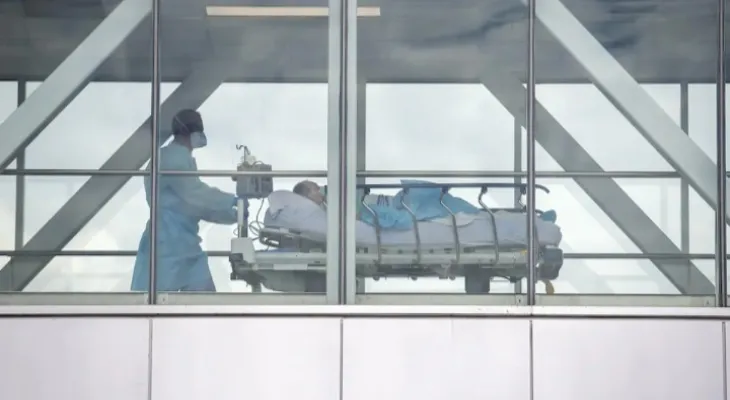Search here
Newspaper
Search here

Arab Canada News
News

Published: March 13, 2023
After three years of the spread of the COVID-19 pandemic, some lessons have become increasingly clear to public health experts. For doctors Carl Weiss and Joanne Liu, the need to establish integrated national response mechanisms as well as an international governance committee is critical.
In an interview with The Facts First, emergency physician Joanne Liu admitted that she was deeply affected by the COVID-19 pandemic. However, she had already faced infectious crises in poor countries and regions when she was at the head of Doctors Without Borders.
However, the force with which the COVID-19 pandemic struck the world surprised Dr. Liu, who stated: "Honestly, I did not believe that in Canada, one of the G7 countries, it would be as difficult as it was. Deaths in nursing homes, in particular, will remain a stain in our history. What I took away from all this is that just being rich does not mean you are doing much better."
Canada, like many other countries, was unprepared to deal with such a virus. There is no doubt that Canadians were not sufficiently prepared, Liu said.
Now, looking to the future, how do you prepare for the next time?
For Dr. Carl Weiss, a microbiologist and infectious disease specialist at the Jewish General Hospital in Montreal, preparations go beyond the field of public health.
Initially, a flu pandemic was expected, but what happened was the COVID-19 pandemic, which is quite unusual, showing that preparation is much more than public health. It is a community preparation that extends to the logistical and organizational levels as well as the industrial level, Dr. Weiss noted in an interview on the program The Facts First.
Dr. Weiss explained that the response of some countries was much better than others, and there are lessons to be learned from all this.
More solidarity:
In addition to the notable international efforts to identify the virus, develop a vaccine, and develop treatments for COVID-19, inequality in the distribution of disease control tools was clear worldwide.
Frankly, when you are in a crisis and resources are limited, "every man for himself," where everyone is for the [domestic] interests of the country. This is why it is necessary to agree in peacetime so that everyone can negotiate in a more humane way, Joanne Liu pointed out, a member of the WHO Independent Committee.
The purpose of this committee is to lay the foundations for an international governance system that allows for better cooperation and a fairer distribution of resources during health crises.
Critical information:
This new global pandemic management body will also contribute to improving information sharing and more transparency regarding viruses and their origins. Currently, the World Health Organization is still trying to discover the coronavirus.
Also, at the moment, "there is no scientific evidence that gives us this explanation," said Tarek Jasarivich, WHO spokesperson, in an interview with Alain Gravel, adding: "As long as we do not have a science-based explanation, all hypotheses are on the table and we must follow them."
For the WHO, knowing the origin of the virus is extremely important.
Mr. Jasarivich continued that it is important to understand the source of every epidemic or pandemic not only for scientific reasons but also for ethical reasons.
Comments